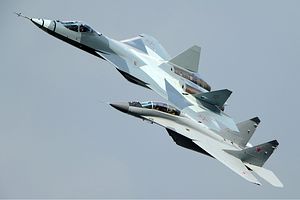Russia has announced that it will increase defense spending by some 18 percent this year despite its worsening economic outlook.
According to a report in Jane’s Defence Weekly, the Russian Federal Treasury announced late last month that “Expenditure on National Defense” will rise from 2,101.4 billion rubles ($58.2 billion) in 2013 to 2,488.1 billion rubles in 2014. This is projected to be about 3.4 percent of Russia’s GDP but over 20 percent of government spending. Another 16.5 percent of the government budget will go to national security and law enforcement.
By contrast, in 2010 defense spending only accounted for 12.6 percent of total state spending while defense and security only accounted for about 25 percent compared to the nearly 37 percent of spending they will make up in 2014. Jane’s notes that spending on “education, housing, social care and healthcare will all fall” as a result.
The increase this year follows what some estimate to be a 31 percent increase in defense spending between 2008 and 2013. Moreover, Russia intends to continue expanding its defense budget in the years ahead. According to the Jane’s report, the Russian Federal Treasury anticipates the defense budget to grow by more than 33 percent over the next two years. Thus, according to current forecasts, by 2016 the Russian defense budget will be around 3,378.0 billion rubles ($95.6 billion).
The rapid increases in defense spending are not unexpected. Indeed, Russia began trying to modernize its military forces in 2008, around the time of its war with Georgia, and announced a decade-long military rearmament program two years later. Under this rearmament program, Russia intends to spend 23 trillion rubles ($723 billion) over the next ten years to modernize its armed forces. The goal is to achieve a 70 percent modernization rate by 2020. Russia’s conventional military power rapidly deteriorated following the collapse of the Soviet Union, forcing Moscow to increasingly rely on its nuclear arsenal to meet its national security needs.
Before assuming the Russian presidency for a third term, Vladimir Putin laid out the case for Russia’s military modernization in an article in Foreign Policy magazine. In the piece, Putin argued that given the current international environment, “Russia cannot rely on diplomatic and economic methods alone to resolve conflicts. Our country faces the task of sufficiently developing its military potential as part of a deterrence strategy. This is an indispensable condition for Russia to feel secure and for our partners to listen to our country’s arguments.”
Nonetheless, it’s far from clear that Russia will be able to meet its military modernization goals given the darkening economic outlook for the country. Already, the massive military rearmament program has elicited significant criticism from certain sectors of Russian society. With a worsening economic outlook in the short-term due to Western sanctions, and in the long-term due to Russia’s excessive reliance on energy exports, it’s quite likely that the ambitious modernization goals set out for 2020 will not be realized.

































